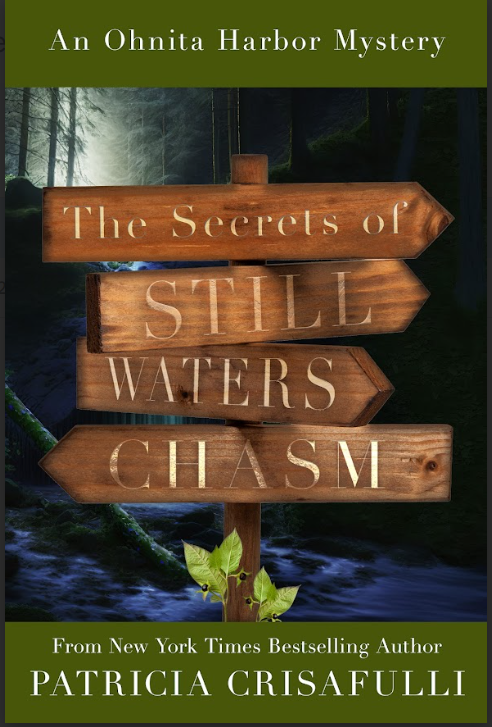By Patricia Crisafulli, @TrishCrisafulli
Writing is one thing—submitting for publication is quite another. We leave the secure world of our creativity for the unknown of an agent’s or editor’s domain. If that weren’t scary enough, a Google search of “percentage of manuscripts that get published” yields a completely disheartening answer. It’s enough to make even the most stalwart writer retreat to the comfort of the sofa with a plate of hot scones.
And that’s precisely why we need to find our courage whether we’re querying an agent, submitting to an editor, or even sharing with a writing group for critique. (Not to mention subjecting ourselves to those pesky reader reviews after publication.)
Courage is not overcoming our fears—it’s welcoming them as part of the process. Fear is important feedback, letting us know that we’ve gone outside our comfort zone. So, if putting our writing “out there” triggers anxiety, we need to congratulate ourselves on taking that big step!
Here are some thoughts for channeling our fear into courage:
- Name that fear. In a word, rejection. Someone tells us, “I don’t like what you’ve written” (though probably not in those exact words), and it feels like “I don’t like you.” The anticipation of that pain can be enough to keep us from making the leap to submit our writing. But this is not a personal rejection—it’s commentary (often subjective) on what we’ve written. By naming our fear, we can bring it down to size.
- Fear—but don’t steer. We know what fear feels like: sweaty palms, shaky knees, palpating heart, and all. That’s exactly what I felt the first time I went zip-lining. Clinging to the straps, I tried to steer but that only slowed me down. On the last jump, the guide told me to “let go”—otherwise I might not be able to go the distance. I had to resist the temptation to steer as I zipped across the expanse, letting the momentum and the wind turn me this way and that. Not only did I use that exact experience for my protagonist in my latest novel, The Secrets of Still Waters Chasm, but it also became a personal metaphor when putting my writing out into the world. I cannot steer—there’s no controlling what others will do or say. This is about letting go—of that book proposal, novel draft, article pitch—and seeing what happens.
- Would you rather not know? It was a crowded Manhattan restaurant on a Friday night. And I, then in my late twenties, sashayed across the floor to the restroom in my favorite white dress with the tiny black dots—the one that skimmed my hips and flowed down almost to my ankles. On the way out of the restroom, someone grabbed my arm and pulled me back inside. “Your skirt is tucked into your underwear!” she said in my ear. That “feedback” saved me from walking across the restaurant with my you-know-what exposed. A moment of discomfort saved me from making a spectacle of myself. And so, it is when I get comments back from an editor with advice on “improving your next draft”—the one I had thought was polished to perfection. We do want to know what needs to be addressed because that’s the feedback that will help us reach the next level (and maybe avoid some embarrassment as well).
- Everybody goes through this—what you learn makes it unique. Okay, so this one is almost cliché, but that’s because it’s true! The list of famous writers who got rejected is very long: J.K. Rowling, James Joyce, Louisa May Alcott, Ernest Hemingway, Agatha Christie, and so many more … Too often, though, this is interpreted as, “Those editors sure were dumb to miss on out Harry Potter” (okay, so maybe that one). But the bigger takeaway is how these luminaries took their rejections in stride, made their rewrites, worked on their craft, and soldiered on. In my own writing career, I received some disheartening rejections at first, then was sustained for a while by “positive rejections” that talked about my promise and potential. That’s when I decided to double down on my craft by getting a Master of Fine Arts (MFA) degree in creative writing—and my thesis became my first published novel!
- Courage keeps our eye on the prize. Step away from writing for a moment—and think about … sports. No, I’m not suggesting that we trade our keyboards for, say, a pair of cleats. But within sports we find numerous uplifting and real-world examples of finding the courage to keep going against steep odds. Consider the almost mythic The Miracle on Ice”—the 1980 victory of a young and amateur U.S. hockey team over an older and more experienced USSR team at the Olympics at Lake Placid. Or, the Boston Red Sox who were down three games in a best-of-seven series and came back to beat their bitter rivals the New York Yankees to advance to the 2004 World Series. As I sit at my keyboard, I’m far from a hockey rink or a baseball diamond (not to mention that I don’t play either sport). But I can draw inspiration from these stories to find my own courage and keep an eye on the prize.
Putting our writing out there may never be easy. We’ll face fear and insecurity at every turn. But with courage, we’ll keep venturing out of our comfort zone and into the realm of possibilities.
Patricia Crisafulli is an award-winning writer and a New York Times bestselling author. Her first novel, The Secrets of Ohnita Harbor, was published by Woodhall Press in 2022, and her second, The Secrets of Still Waters Chasm, was published in September 2023.
Finding the Courage to Put Your Writing “Out There” Share on X
Image by Sasin Tipchai from Pixabay



Thanks so much for posting today, Patricia! Great topic.
This is good advice, and it's something that writers really need to learn. Handling our anxieties is a part of the writing process.
And it’s a tough part of the process!
I would definitely want to know. Probably why I've never feared the editing. Go ahead – make it better!
I feel that way, too. Criticism helps me out!
Thanks for the advice. It's hard to take the plunge and put our work out there. You also have to really want to get published to be willing to overcome the fear of rejection and all the work of getting published.
It’s definitely a lot!